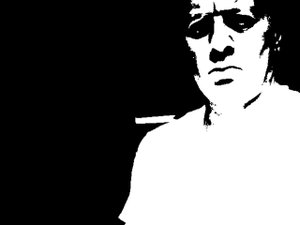Blog Post #3: The Mayor’s Telephone Town Hall: A Different Kind of Reality Show?
Last Monday night Mayor Harvey Johnson Jr. held a telephone town hall, a new variation on the town hall format, and according to his campaign invited approximately 20,000 city residents to call in and both listen to and ask questions of the mayor. A toll-free number was provided, and during the town hall the moderator and host of the town hall said that approximately 3,500 folks had called in.
The format allowed residents to call in and listen to the mayor answer their questions live, and one can see why his campaign would think it’s an effective format for the mayor, because it plays to his strengths: mastery of governmental detail, dense knowledge of the city and its history, and a facility for speaking to voters borne out of a long career in public service and countless city council meetings.
For the most part, the questions were as one might expect, ranging from questions about economic development and businesses leaving the city to issues of education, crime and infrastructure, and to this listener's ears were respectful and friendly. And the mayor, again as one might expect, turned in an impressive performance, save for a few technical glitches that were quickly resolved. It’s a format he appears to be very comfortable with, his demeanor and tone different from what one might hear at city council meetings, where he can sometimes seems irritated or impatient with questions. The mayor’s answers, while full of facts and figures, were delivered in a friendly tone and upbeat manner. I’m sure his campaign staff was very happy with the results.
Yet it is hard to reconcile and link this modernized and virtualized town hall with the intent of the original concept, and easy to question the civic and political legitimacy of the result. The town hall format has a long American tradition, and at its heart is the notion of direct democracy; the idea that a community gets together at the same time in the same place to discuss issues face to face, and then to vote, with no moderator or elected official mediating the discussion. It is the purest form of democracy, and democracy at its most transparent, treating all participants as equals.
And that’s the “disconnect," isn’t it? This adaptation of the town hall format only leads us to ask a number of questions of the Johnson campaign, and they are legitimate questions: Who were the callers? Who chose the questions that were allowed to be asked of the mayor, and were the questioners chosen on a first-come basis? What were the criteria for choosing a question? Were difficult or contentious questions screened or ignored? And why was there no opportunity for follow-up questions? (I did not hear any while listening.) Obviously, these are all questions we would not need answered at a real town hall. We would hear and see our fellow citizens.
And perhaps that’s the whole point of the event, to look like one thing while actually being something close to the exact opposite of the thing. It’s a contrivance, as real and unscripted as a reality show, with much the same intent: to appear to be something it is not while selling a message or product.
So far it looks like a recurring theme in this campaign will be the mayor’s reluctance to date to engage either the public or his opponents, and I’ve written previously that his campaign may think that is both a valid and ultimately winning strategy. There is a debate coming up next week on Monday, March 25th hosted by the Hinds County Democratic Executive Committee (see JFP events for detailed info), and we’ll see if that strategy continues and how loud the grumbling by his opponents and the voters gets. So far it’s not loud enough for the Johnson campaign to change its strategy.
Note to the reader: I got on the telephone town hall call a few minutes late, and got in the queue to ask a question about 20 minutes into the call. During the call the host said that callers with questions could leave a voicemail at the end of the call, and that the mayor would answer all the questions there wasn’t time for on his Facebook page. So far that has not happened.


Comments
Use the comment form below to begin a discussion about this content.
comments powered by Disqus